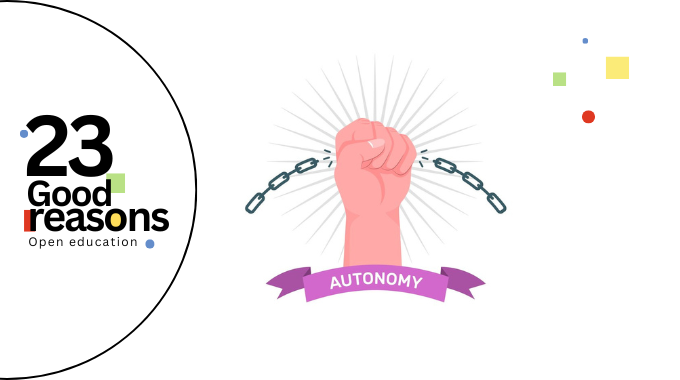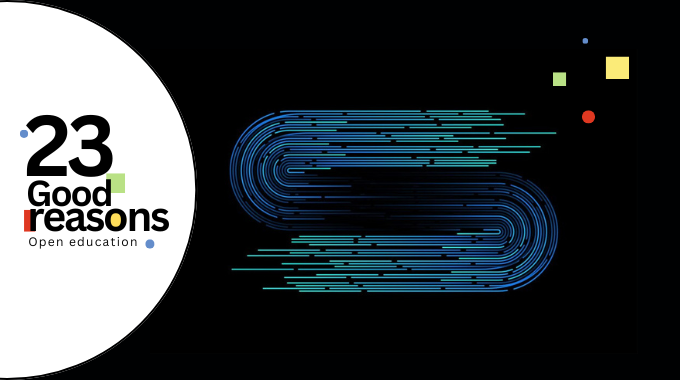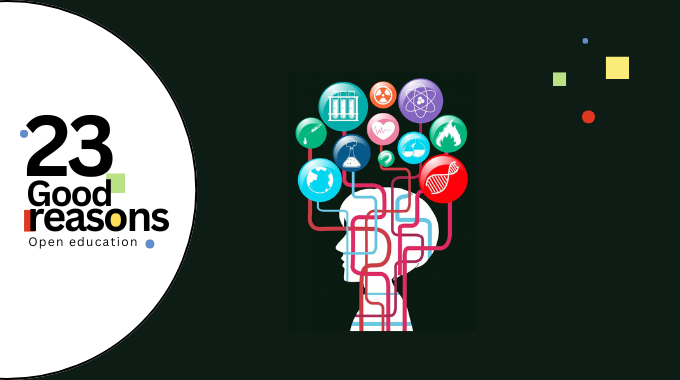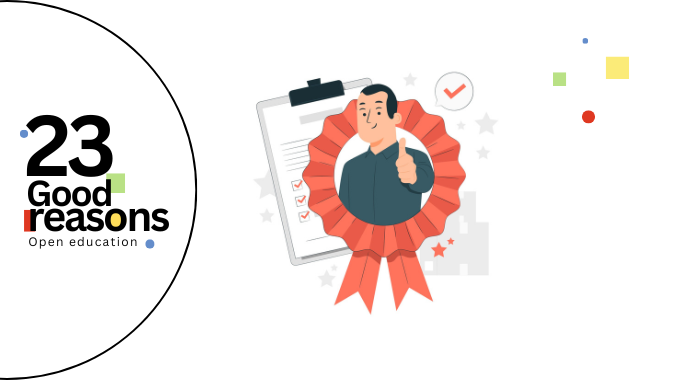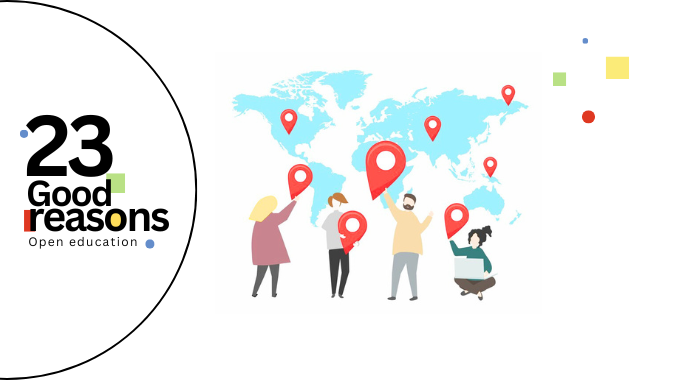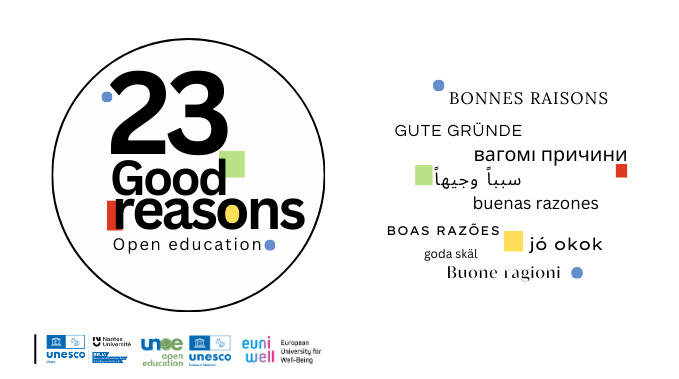Today’s article is written by Paul Stacey
Paul Stacey works globally in higher education strategically enabling and connecting open education with open science, and other forms of open. Paul has deep experience in open through his work at Creative Commons and as executive director for five years of Open Education Global. He now works independently as an open researcher and consultant at https://paulstacey.global.
As humans we have an urge to lead our own lives, make our own decisions, develop ourselves as we see fit. Yet we live in a social context with others. Full individual autonomy is counterbalanced by equal autonomy of others. Directing our own lives inevitably entails accommodating others. The freedom to lead our own life involves choosing between different courses of action as defined by oneself and others.
Autonomy is the state of mind that makes our choices meaningful. We’re autonomous when we have enough understanding and self-awareness to be able to make choices that align with our values and genuine interests. We’re autonomous when we know enough (about the world, and about ourselves) to be able to not follow the crowd unless it’s going where we want to go. When our autonomy is low, our choices are more likely to be whimsical, biased, ill-informed, or just “because everyone else is doing it;” and more likely to be self-destructive. When our autonomy is high, we’re more likely to make choices we’ll never regret, choices we can be proud of. Autonomy, therefore, liberates us to be our best selves. (Nicholas Alchin, Student Choices, Student Autonomy, and Student Agency: What are the Relationships?, 2021)
We have an innate drive for knowledge, to improve our skills to advance our understanding. Fuelled by curiosity we explore the world and learn from it. The extent to which we can take charge of our own learning represents our learning autonomy.
Learning occurs in a social context shaped by history, heritage, culture, language, customs, rules, laws and other external forces. Our social context can take many forms, a friend network, a club, a team, a school, a city, a nation. These social groups take on their own autonomy based on the individuals involved coming together and working toward a common end. This collective action, in the service of something larger than the individual, is achieved by creating mutually beneficial interdependencies within a larger social network. Individual autonomy and social autonomy come together in a way that creates a sense of connectedness, community, and belonging.
Autonomy in education involves empowering students, teachers, and schools to have choices and make decisions. Autonomy generates greater engagement, motivation, better learning experiences and more efficient use of resources. Student autonomy, teacher autonomy, and institutional autonomy are all interrelated and are all affected by external controls. Our society sets academic standards. Programs of study specify scope and sequence. Rates of learning and dates for learning are predefined. Schools are created as places of learning. Education is increasingly centralised, regulatory and marketized. These external forces influence and shape our individual learning autonomy. They affect the extent to which we can direct our own learning. They affect the control we have over what we learn, where we learn, and how we learn.
One of the unique propositions of open education is that it encourages autonomy for learners, educators and institutions.
For students open education offers immediate no, or low cost, access to education materials and resources. Open educational resources can be retained by students for life giving students the autonomy to engage in lifelong learning by referencing materials on an ongoing basis whenever needed. Open educational resources can be adapted, translated, localized and continuously improved enabling students to customize and personalize their own learning.
And open education goes well beyond simply teaching and learning materials. Open education pedagogies give learners greater agency over their own learning. Instead of passive lectures, learners may co-create teaching and learning materials with the instructor, producing knowledge that will then be used by all those who come after them. They may engage in assignments that generate local or global public goods making their learning publicly visible and contributing in real ways to social needs. In higher education open education utilizes open research and open research data enabling learners to gain a literacy and understanding of what it means to be a researcher and to see how open accelerates the advancement of knowledge.
For educators open education provides greater choice. Teachers can develop and customize curricula to match their own understanding of a domain. They can create materials in their own language, localized to their own social context. Open education, like research, is openly shared enabling educators to learn from their professional peers and use the best materials available from across their domain. Open education turns the creation of learning materials from a solo effort into a team effort. In a profession frequently constrained by time it is helpful to reduce redundant effort and instead participate in mutually beneficial producing, sharing and stewarding of teaching and learning materials. In this context autonomy is not independence or just being left alone. The greater autonomy of open education brings with it greater accountability, including responsibility to contribute to the body of professional knowledge. Open education encourages the autonomy of educators by giving them more control, and responsibility, for knowledge production and opportunities to innovate teaching and learning, finding new ways to make learning meaningful and engaging for students.
For institutions open education provides the autonomy to better manage their own education systems and processes. Open education shifts the locus of control from external agencies to internal ones giving institutions greater resiliency to handle crises and self govern. The principles that underlie open education align with institution mission and vision statements particularly around providing access to education, making education affordable, providing equal opportunity, and greater inclusion. In addition, open education increases the social relevance of knowledge and research by increasing public engagement and connection with society.
At a time of high interest in sovereignty, open education provides a means for having choice and reclaiming control over the resources, methods, and systems that shape education.
Open education is only one of many forms of open in higher education. It is part of a broader spectrum of opens including open research, open science, open access,open data, open innovation, open hardware, open source, and open governance. Each open provides additional autonomy. Combining them together creates a synergistic effect that maximizes autonomy for the good of all involved.
